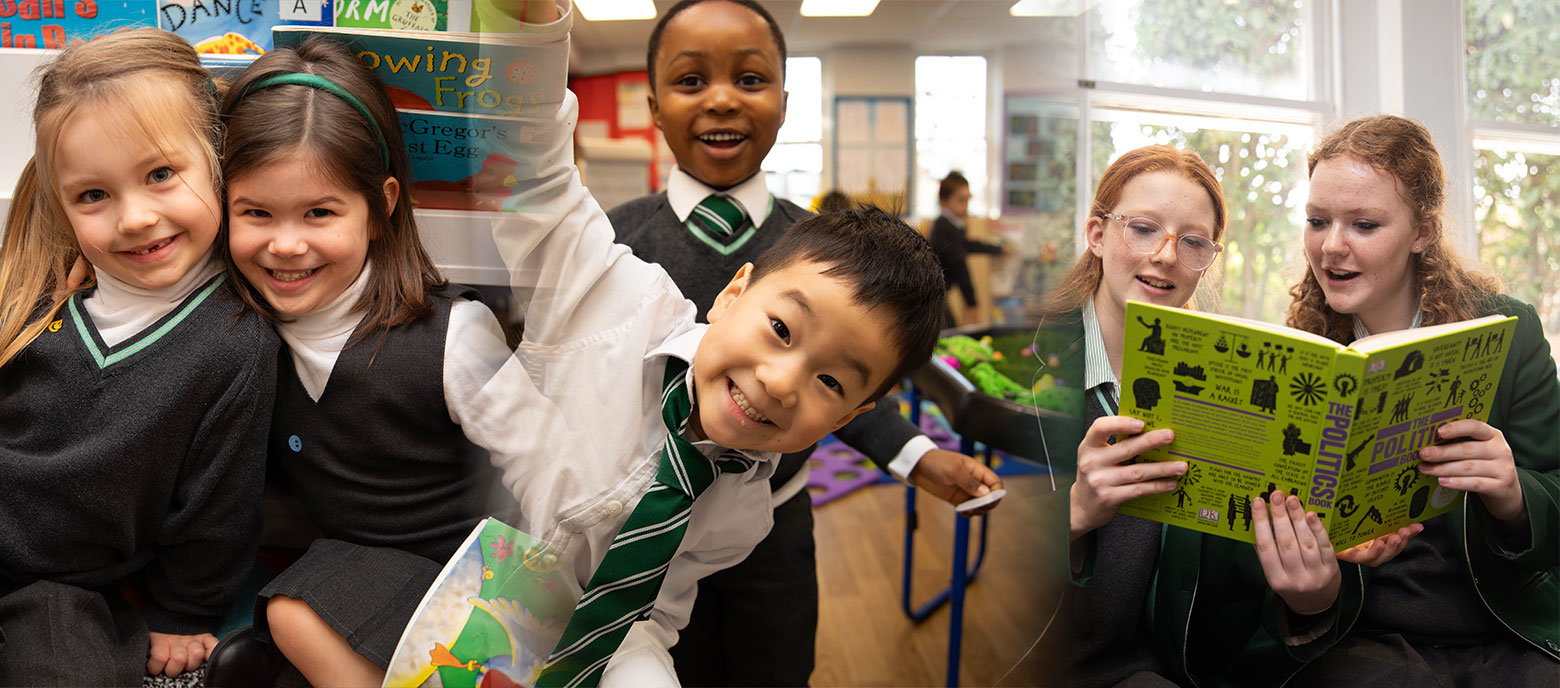To help pupils navigate their way through, and succeed in, a challenging world, Louise McCabe-Arnold, Head of Surbiton High Girls’ Preparatory School, and Tracey Chong, Head of Surbiton High Boys’ Preparatory School espouse the value, and importance of, developing the personal quality of grit within our children.
Simply put, grit can be defined as displaying passion and perseverance in the pursuit of long-term goals. Psychologist Angela Duckworth, a pioneer in the field, first began researching grit when considering the question ‘Why do some children succeed and others don’t?’. Studying pupils who showed long-term success in their academic and general life trajectory revealed that a combination of grit, self-control, reliance and ambition were the most reliable predictors of a positive outcome rather than just intelligence and skill.
Often, we view ‘excellence as the result of natural talent,’ however, Louise McCabe-Arnold believes that no matter how naturally gifted a person may be they will still have to put in the work to realise it. There are no shortcuts. ‘Passion’ she says is what helps individuals to realise their talents and goals. Without passion, the process becomes one of drudgery and void of enjoyment. Passion is pivotal in keeping the desire to achieve alive.
Whilst seemingly counter-intuitive, an important step in the development of grit is allowing children to experience moments of failure. By taking children out of their comfort zone, we give them a chance to see that they ‘can fail, can bounce back and know they will bounce back’. It goes against our natural instinct to want to reassure a child but ‘they need to understand that sometimes things go wrong’. The learning opportunity is to how to pick yourself back up, work out your next steps and help yourself to make a situation better. That process enables children to learn how to persevere and develops their capacity for grit.
As parents and teachers, we too can live out these values and be influential role models to the children in our lives. Stepping out of your comfort zone, perhaps by picking up a new hobby, can be an illuminating insight into what it feels like to be a child learning a new skill. Go one step further and embrace developing your grit as a whole-family endeavour! Have each family member commit to working on their ‘one hard thing,’ whether that’s Dad tackling his first 10K run or a sibling expanding their cookery repertoire. Agree on a period of time between you that each family member will commit to pursuing their goal and provide support to each other during the process.
Whilst challenging, hopefully, a lot of fun also awaits, but crucially we are not teaching that we do not allow ourselves or our children to never give up. Sometimes it is important to acknowledge that we need to, or indeed want to, give something up. However, the key thing is to give it a really good go first. As teachers and parents, it’s vital that we praise effort, not simply accomplishments.
When it comes to approaching problems, another technique that we can teach our children is the concept of a ‘grit pie’. Visualising a scenario as a number of smaller slices, representing the different aspects of the wider issue, can be especially helpful for children who feel overwhelmed by the perceived size of a problem. Together with your child, you can analyse how to approach solving each piece of the pie. ‘It gives children the idea that they can break down the problem into smaller bite-sized pieces and it’s a process; we’ll deal with one part and when we’ve solved that we’ll move onto the next part’.
Both of the Surbiton High Preparatory Schools place the development of grit at the core of teaching and learning, underpinning a lot of the values pupils are exposed to in School on a weekly basis.
Tracey Chong and Louise McCabe-Arnold believe that we need to teach pupils that ‘they have all these tools they can draw upon to help them through those tricky parts’. As an example, most of us can likely relate to being chosen to give an answer in class and doubting, in that moment, if you know the answer. By encouraging our pupils to face head-on, rather than fear, moments of discomfort and struggle they are learning that, in spite of that experience, that ultimately, they are, and will be, okay. This is a hugely valuable lesson which will enable them to thrive.
Categories: Blog Leading, Teaching and Learning




